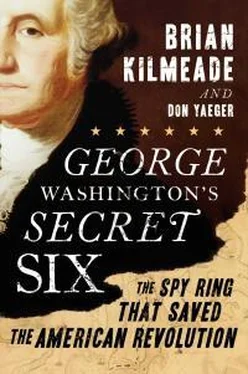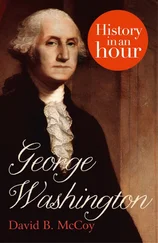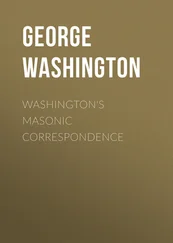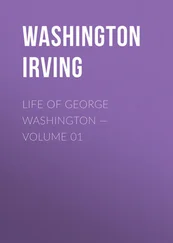Pennypacker rushed to the archives where he stored several letters of espionage that had been signed by members of Washington’s secret service during the war. He took a sample from the stack of Robert Townsend’s papers next to him and placed it side by side with the Culper Junior letters, peering through a magnifying glass until he was convinced he had a match. Was he holding in his hands clear proof of the identity of the New York spy Washington trusted with his secrets? The reserved, bookish Robert Townsend—perhaps the most private of all the Townsend brothers of his generation—was the daring and courageous Culper Junior!
Of course, Pennypacker needed a professional confirmation of his hunch, so he sent the samples to the nation’s leading handwriting analyst. Just a few weeks later, he received a reply. There was no doubt: Oyster Bay, the home of President Teddy Roosevelt, had another hero to celebrate.
With Townsend’s identity confirmed, the pieces of the Culper puzzle began to fall into place. The previously disconnected spies now formed a coherent ring, with Townsend at its center. Under the command of Major Benjamin Tallmadge, these five men and one unidentified woman—Robert Townsend, Abraham Woodhull, Austin Roe, Caleb Brewster, James Rivington, and Agent 355—never received the acclaim they deserved in their lifetimes. Together, these men and one woman who had no formal training in the art of espionage, living in Oyster Bay, Setauket, and Manhattan, broke the back of the British military and helped defeat the most powerful fighting force on earth.
One agent remains unidentified: a woman mentioned in the Culper Ring’s correspondence by the specific code number 355, “lady.” The pages that follow present a compilation of the various activities associated with 355, what history tells us about her probable contributions to the efforts of the Culper Ring, and what resulted from her work. Though her name cannot be verified, and many details about her life are unclear, her presence and her courage undoubtedly made a difference. She represents all covert agents—those men and women whose true identities are never revealed and whose stories are never told, but who offer their service and their lives on behalf of their country. To each of them, we owe an inexpressible debt.
This book recounts the methods, the bravery, the cunning, the near misses, and the incredible successes of the Culper Ring, which helped to save our nation and shape our future. Most of all, this is a story about ordinary citizens doing extraordinary things, people whose fears and hopes and lives were not much different from our own, and how they changed the course of history. Their humility stopped them from seeking fame or fortune because their love of country sparked their exploits.
All Americans owe a tremendous debt of gratitude to George Washington’s secret six. This book is written to honor them and the groundwork they laid for our future of freedom.
Introduction
SEPTEMBER 1776
He was twenty-one years old and knew that in a matter of moments he would die. His request for a clergyman—refused. His request for a Bible—refused. After writing a letter or two to his family, this Yale grad uttered, with dignity, the famous statement “I only regret that I have but one life to lose for my country.”
A noose was placed around his neck, and the ladder he had climbed was ripped away. On September 22, 1776, on the island of Manhattan in an area now located at Sixty-Sixth Street and Third Avenue, Captain Nathan Hale was hanged for being a spy. He had volunteered to go behind enemy lines on Long Island for George Washington, and the British would claim that he was caught with sketches of British fortifications and memos of their troop movements. Without a trial, he was sentenced to death. The message sent to all New Yorkers was clear: You spy, you die.
CHAPTER 1 Hold New York, Win the War
New York, without exaggeration, is the pivot on which the entire Revolutionary War turns.
—John Adams
The execution of Nathan Hale on September 22, 1776, was the lowest point in a month of low points for General George Washington. First, the British had taken New York City and Long Island—the cornerstones of Washington’s strategy because of their valuable geographic and economic positions at the heart of the North American colonies. Now, Washington’s attempt at building an intelligence network to recoup that loss had failed spectacularly. Just two months after the fledgling country’s declaration of independence, there seemed to be no future for the new nation.
And yet there had been so much hope just a season ago, in spring. After successfully sending the British packing from Boston in March after a prolonged siege, Washington had begun ordering troops toward New York City, whose harbor was of tremendous tactical—and psychological—importance. If the Patriots could hold that other great port of the Northeast, victory might be within reach.
As Washington left Massachusetts on April 4, 1776, to begin his own march southward to rejoin his men, the cheerful reports sent back by the advance parties were confirmed: Farmers and tradesmen were greeting the American troops as they passed through rural villages, pressing gifts of food and drink on the soldiers who had displayed such courage and pluck fighting the redcoats.
“Enjoy this bacon,” urged local butchers, heaving slabs of salted meat onto the supply wagons.
“Fresh milk!” announced the housewives who scrambled out of their cottages wielding buckets and dippers.
Gaggles of little boys wearing homespun blue jackets gathered to parade in front of the men as they traversed through town—one child held up a twig as if playing a fife; another pretended to beat a drum in a marching rhythm; the rest chanted the popular refrain “Join or die!” as they reveled in the Patriotic fervor and holiday atmosphere.
Even the sophisticated city crowd, usually much more reserved in their displays of celebration than the country folk, had cheered in the streets as Washington crossed into Providence, Rhode Island. In roadside taverns and stylish urban coffeehouses across Connecticut, toasts were raised to the unlikely homegrown heroes and their quiet but imposing leader. As word spread up the Hudson Valley that the Continental Army was on the move, settlers who now considered themselves Americans, rather than Dutch or German or British subjects, had whispered prayers for the protection and advancement of the cause of independence.
Throughout his nine-day journey spanning four states and nearly three hundred miles of forest roads soggy with springtime mud, Washington had seen increasing hope among the people. There were dissenting voices—those whose closed shutters and drawn shades as the Continental Army passed bespoke their loyalty to King George III and the motherland. But it was clear that there was a sense of growing excitement that this wild, untested experiment in personal freedom and individual rights just might prove more powerful than the most disciplined and well-equipped fighting force on earth.
Despite the buoyant spirits of the people, Washington’s own hope was kept in check by a sober view of facts. While the Patriots had enjoyed some early victories in Massachusetts, these wins came at a high cost when compared with their tactical significance. The Battle of Bunker Hill in June 1775, however, had gone to the British, though with heavy loss of life and limb on both sides. The Siege of Boston, which ended the following March, had been a win for the Patriots, but their success was due more to the position and strength of the American fortifications than any great offensive maneuvers to rout the enemy. In the end, the British gave up on the city, leaving voluntarily rather than fleeing in an all-out retreat. General William Howe, commander in chief of the British army in North America, had his sights set on a much bigger and more agreeable prize than belligerent Boston.
Читать дальше












